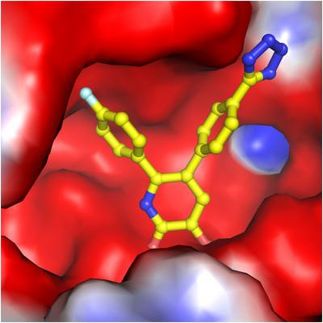Crucell Discovers Important New Antibody Against Influenza A
Advertisement
Crucell N.V. and The Scripps Research Institute published an article in Science describing Crucell's novel anti-influenza antibody CR8020 and how it neutralizes group 2 influenza A viruses. Attempts to isolate broadly neutralizing antibodies against group 2 viruses have not been previously described. The broad neutralizing ability of the CR8020 makes it a potentially groundbreaking therapy against seasonal and pandemic flu.
In February 2009, Crucell and The Scripps Research Institute published a paper in Science, reporting the discovery of a panel of human monoclonal antibodies showing neutralizing activity against almost all influenza A group 1 viruses. The most potent of these antibodies, called CR6261, prevents or cures influenza, in animal tests, to deadly levels of the H5N1 and H1N1 viruses.
In this new study, Crucell reports that, by recognizing a novel conserved epitope in the hemagglutinin stem, the antibody CR8020 shows broad neutralizing activity against most influenza A group 2 viruses, including the H3N2 and H7N7 viruses, which cause severe human infection.
Crucell believes that a combination of these two antibodies may be sufficient to neutralize most influenza A subtypes and, with that, enable the development of a universal flu vaccine and a broad spectrum of antibody therapies.
Attempts to isolate broadly neutralizing antibodies against group 2 viruses have not been previously described. Antibodies, such as CR6261 and CR8020, may protect against essentially all influenza A viruses and would have undisputed benefits for high-risk groups, such as the elderly and immunocompromised, and for severe, life-threatening influenza infections.
Currently, two main countermeasures are used against flu. Antivirals have been widely used and proven to be quite effective. However, resistance to these antivirals has reduced their effectiveness and mutations are widespread.
Vaccination is the other countermeasure. Each year circulating strains of influenza virus subtypes, currently H1 and H3, change the composition of the viral surface protein known as hemagglutinin by mutation. Consequently, if one has had a vaccination against influenza this year, the antibodies produced by the immune system will most likely not protect against next years' flu. If an antibody was able to recognize an invariable structure in the hemagglutinin protein, such an antibody could be applied for the prevention and therapy of influenza caused by a wide variety of flu strains.
The unique property of the Crucell antibodies appears to be related to its mechanism of action. The paper published in Science entitled "A Highly Conserved Neutralizing Epitope on Group 2 Influenza A Viruses" shows the isolation and characterization of a human monoclonal antibody CR8020 with broad neutralizing activity against most group 2 viruses, including H3N2 and H7N7, which sporadically cross from birds into humans and have the potential to develop into a future pandemic.
Original publication
"A Highly Conserved Neutralizing Epitope on Group 2 Influenza A Viruses."; Science.
Other news from the department research and development
Most read news
More news from our other portals
See the theme worlds for related content
Topic world Antibodies
Antibodies are specialized molecules of our immune system that can specifically recognize and neutralize pathogens or foreign substances. Antibody research in biotech and pharma has recognized this natural defense potential and is working intensively to make it therapeutically useful. From monoclonal antibodies used against cancer or autoimmune diseases to antibody-drug conjugates that specifically transport drugs to disease cells - the possibilities are enormous

Topic world Antibodies
Antibodies are specialized molecules of our immune system that can specifically recognize and neutralize pathogens or foreign substances. Antibody research in biotech and pharma has recognized this natural defense potential and is working intensively to make it therapeutically useful. From monoclonal antibodies used against cancer or autoimmune diseases to antibody-drug conjugates that specifically transport drugs to disease cells - the possibilities are enormous


















































